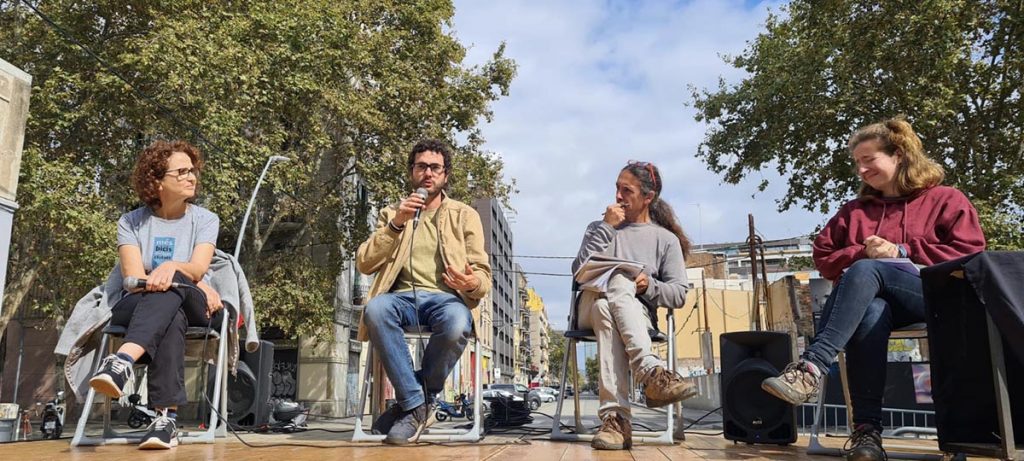
How do we make cities more friendly to children and families who want to ride their bikes to school? What is the current status of bicibús projects in Catalonia and what are the lessons learned from the early adopters? These questions were the focus of a round table discussion on urban cycling for children moderated by Gemma Simón i Mas, member of City Lab Barcelona, and PhD student at ICTA-UAB. The round table was titled Bicibus.cat pedalem cap a les escoles, formació ciclista per a tothom and consisted in a conversation with experts and activists that have created bicibus projects in Catalonia. The panel included (…name) from Granollers, Eduard Folch, from Canvis en Cadena and (….). The event was sponsored by Coòpolis, a cooperative athenaeum aimed to foster social and co-operative economy in Barcelona.
Panelists described what it took to develop a Bicibús initiatives in their city of school. A Bicibús is a group of children that ride together to school through a fixed route stopping to pick up other schoolmates as if they were riding a bus. This initiative began to gain strength in Vic thanks to the organization of some families and their school community. They started riding in group to support each other through a busy street with no cycling infrastructure and continued to do so due to the great involvement of the rest of the families. Right now, there are 18 Bicibús lines in 12 schools that they helped setting through the association Canvis en Cadena.
The other story came from the experience of a Bicibús line formed in Granollers, who shared the success and challenges of motivating families to participate in the bicibus project. The conclusion was that children riding their bikes to school can be a strong impetus for change, forcing city planners and elected officials to re-assess their street designs and reinforce the demand for traffic calming measures and improved cycling infrastructure.


